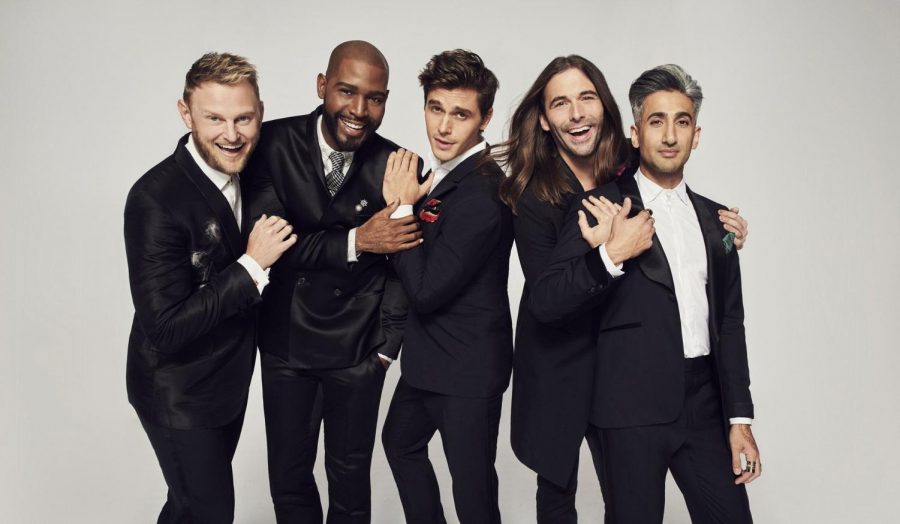Eye for Detail
Popular tv show, Queer Eye, takes on a new season
March 18, 2018
When it debuted in 2003, ‘Queer Eye for the Straight Guy’ capitalized on the image of the outwardly prosperous gay man that insisted high-quality handbags should match high-quality inner lives, offering up an inspirational, aspirational symbol for Americans gay and straight alike.
The Netflix reboot, shortened just to ‘Queer Eye’, continues this mission with the same sentiment. For this season’s edition, the “Fab Five” descend to Atlanta, where they launch interventions into the lifestyles of the dumpy and normal. They buy them new wardrobes, smart haircuts, and for extra pizzazz, give them drastic home renovations.
It is really great TV. Much credit goes to the group of highly watchable experts, whose breakout stars include Karamo Brown, a queer activist and self proclaimed bro-whisperer; Jonathan Van Ness, a whirlpool of sass and moisturizing wisdom; Bobby Berk, family man and house decor extraordinaire; Tan France, fashion expert; and Anton Porowski, the loveable food whiz.
The show asks questions about masculinity and stereotypes. It feels real, authentic like they really care. The early parts of each episode buzz with an energy of culture clash, and there’s always an awkward-funny scene of the fab five rummaging through a knickknack-strewn home, peering at heaps of items in disgust. By the end, it’s a bundle of friendship and crying, testifying to the transformative power of incorporating a pop of color into one’s daily look. The wave of essays and tearful social media responses in response confirms the show’s success in calibrating humor, meaning and heart.
But Queer Eye doesn’t want the audience to think quite so much about what’s arguably its greatest entertainment: the easy-breezy spending of money. Instead, it fully embraces money’s great proxies: time and labor. Hollywood screenwriting textbooks advise creating characters who have an external motivation (get the treasure, save the world) and an internal motivation (find love, move on from trauma) so that movies can provide the magic of resolving two quests at once. Queer Eye performs the same ploy. Can you learn to love yourself anew without new stuff? The show, unsurprisingly but also significantly, avoids the question.
However, to Queer Eye’s credit, you can discern some subtle attempts to keep money from playing too outrageous of a role. The often-stated goal is not to sequin the subjects but rather to accentuate their “true” selves with finer fabrics and fits (plus just a smidge more effort and know-how.)
But what is really amazing about this show is its heart. It has political nous, it has heart, it has style and it feels utterly relevant to the now.


